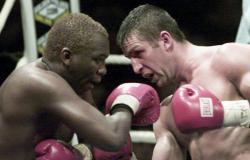It’s cold in the courtroom where Donald Trump is on trial. “Judge, is it possible just to warm it up a degree or two?” Todd Blanche, Trump’s hapless lead attorney, asked last week. “We are shaking.” Judge Juan Merchan acknowledged the temperature. “It is cold, there is no question,” he said from the bench. But there wasn’t much he could do. The Manhattan Criminal Courthouse opened in 1941, and its HVAC system has two settings: icebox or oven. “I would rather be real cold than sweating,” Merchan said. “And really those are your choices.”
Trump, a fifteen-minute escorted motorcade ride from the gilded comforts of Trump Tower, is feeling the chill. “They’re keeping me in a courtroom that’s freezing,” he told reporters in a courthouse hallway. In Trump’s case, however, this sensation may also be a physiological response to the stone-cold insults directed at him by what feels like nearly every participant in the trial so far. During jury selection, last week, he was forced to sit silently as everyday New Yorkers said infuriating things to his face. “I feel that nobody is above the law, whether it be a former President or sitting President or a janitor,” one prospective juror said, with disdain. In order to weed out anti-Trump bias in the jury pool, Trump’s lawyers went through prospective jurors’ social-media histories. At several points, Susan Necheles—another Trump lawyer—recited negative posts written about her client, as if it were one of Jimmy Kimmel’s “Celebrities Read Mean Tweets” segments. “Stop the election of a racist, sexist narcissist,” Necheles said, standing at the defense table. “I wouldn’t believe Donald Trump if his tongue were notarized.” Another post read, “Trump is an anathema to everything I was taught to love about Jesus, everything I was taught about how to live out my faith. His disdain for decency, disrespect towards basic tenets of right and wrong and complete disregard for the most vulnerable among us could not be more fundamentally un-Christian.” As Necheles read these words out loud and into the record, Trump sat just a few feet from her, his face scrunched into a frown.
The prosecutors have called Trump a cheat, a crook, and a miser, who knew exactly what he was doing when he tried to subvert the rule of law. “The defendant, Donald Trump, orchestrated a criminal scheme to corrupt the 2016 Presidential election,” Matthew Colangelo, an Assistant District Attorney, said in the government’s opening statement. “Then he covered up that criminal conspiracy by lying in his New York business records over and over and over again.” Trump has had to sit there as the prosecutors have discussed the sexual affairs that the adult-film star Stormy Daniels and the former Playboy Playmate Karen McDougal—both expected to testify in the case—say they had with him in the early two-thousands, when he was already married to his wife, Melania. He’s had to sit there as the prosecutors have detailed the grubby hush-money scheme he concocted to buy Daniels’s and McDougal’s silence before the 2016 election. He’s had to sit there as the recent civil judgments against him have been brought up, including the journalist E. Jean Carroll’s sexual-assault and defamation lawsuits, and the New York State Attorney General’s civil fraud case that resulted in a nearly half-billion- dollar judgment against him. He’s had to sit there as his high-priced lawyers and the judge have debated his perverse relationship with social media, and drilled down into whether, in a legal sense, retweets do or do not equal endorsements. “He is just mad at the world,” a source familiar with Trump’s thinking told CNN’s Dana Bash.
Merchan has spoken of the constitutional requirement of a fair trial. But he’s been visibly exasperated by Trump’s recklessness and viciousness. For weeks, Trump has been complaining about the gag order that the judge imposed on him before the start of the trial, prohibiting him from making public statements about potential witnesses or prospective jurors. Most criminal defendants stick to such a proscription, in deference to the law, or at least fear of it. Trump has said all kinds of things lately about Daniels and his old lawyer Michael Cohen, who are expected to be the prosecution’s key witnesses. “Sleaze bags who have, with their lies and misrepresentations, cost our Country dearly!” he’s called them. The former President has also attacked and intimidated potential jurors on social media. Last week, Merchan reprimanded him for muttering and gesturing aggressively while a potential juror spoke. A few days ago, he posted that “undercover liberal activists” had been caught “lying” to try to get onto the jury. Prosecutors from the Manhattan District Attorney’s office asked Merchan to find Trump in contempt, and to fine him a thousand dollars for each of ten recent online posts. “President Trump is being very careful to comply with Your Honor’s rules,” Blanche told Merchan on Tuesday. Merchan glowered on the bench. “You, Mr. Blanche, you are losing all credibility,” he said.
Trump’s own lawyers have all but acknowledged that their client is a liar, and a terrible, impossible person. Speaking to a prospective juror who said she’s once been the victim of sexual assault, Necheles caught herself after almost suggesting that Trump had sexually assaulted Daniels and McDougal, who have said that they had consensual sex with Trump. “You understand, in this case, that there will be women who have—well, not in this case in particular—but there have been women who have accused President Trump of assaulting them?” Necheles asked. “You would be able to put that out of your mind?”
Trump is lucky that New York does not allow cameras to be used during court hearings. Aside from courtroom sketches, the only images of him in the courtroom are taken by a handful of photojournalists—”the spray”—who are allowed about thirty seconds every morning to snap a few pictures of him at the defense table. In front of these cameras, Trump gathers himself and juts his chin at a practiced angle. As soon as they’re gone, he visibly slumps in his chair. Coming into or out of the courtroom, he walks without his wife or his kids, flanked by lawyers, Secret Service agents, and aides wearing worried faces. All day long, he endures bemused stares from the journalists in the gallery. A few spaces in the back are reserved for members of the public who have come to gawk. “I have so many quotes from it in my notebook because it was just that funny,” one teenage spectator told the Mail after observing a day of proceedings.
At the end of court each day, Trump has done his best to spin what’s happening inside. Last week, he took an evening trip to Harlem to visit a bodega whose owner was arrested and then cleared in a 2022 fatal stabbing in his store. Trump had hoped to embrace him as a fellow-victim of Manhattan District Attorney Alvin Bragg’s overzealous prosecution. But the bodega owner wasn’t there—he was on vacation in the Dominican Republic, his lawyer said. The reality is that Trump is being exposed and humiliated by what’s happening in Merchan’s courtroom. On Monday, the government called its first witness in the case: David Pecker, the former CEO of the National Enquirer’s parent company. In 2015, Pecker met with Trump and Cohen and agreed to serve as the “eyes and ears” of Trump’s Presidential campaign. Throughout the next two years, the Enquirer bought and buried bad stories about Trump, ran flattering articles about him, and ran damaging stories about his opponents. (Examples: “Ted Cruz Shamed by Porn Star,” “ ‘Family Man’ Marco Rubio’s Love Child Stunner!”) Pecker, a soft-spoken man with silver hair and a bushy mustache, called himself an old friend of Trump’s. “Mr. Trump was well known as the most eligible bachelor and dated the most beautiful women,” he said. “When someone is running for public office like this, it is very common for these women to call up a magazine like the National Enquirer to try to sell their stories.” Despite his grandfatherly demeanor, Pecker described to the jury how he willingly participated in Trump’s hush-money scheme, with hardly a second thought for the morality of smearing people, and using contracts as “levers” to control individuals and information. Talking about his tabloid’s investigation of a rumor that Trump had fathered a child with his housekeeper, Pecker said, “If the story was true and I published it, it would be probably the biggest sale of the National Enquirer since the death of Elvis Presley.” (The rumor turned out to be false.)
So far, Trump’s lawyers have not mounted much of a defence. “Somebody at Trump Tower generated a check,” Blanche said, during his opening statement on Monday. “The check made its way down to the White House, and President Trump signed it.” All the defendant had done was pay hush money while running the country. “What is a crime about what I just described?” Blanche asked. For most of his life, Trump has acted as if the Constitution protects his right to do basically whatever he wants. It doesn’t. The deference that Trump takes for granted because of his money and power extends somewhat into the courtroom—no other criminal defendant would be allowed to post about witnesses and jurors the way he has, and Merchan has yet to rule on the contempt issue—but it doesn’t extend all the way. In the courtroom, Trump is being confronted directly in a way he simply is not used to. It might be cold in there, but the heat is on. ♦
Tags: Donald Trump Ritually Humiliated Court
-





